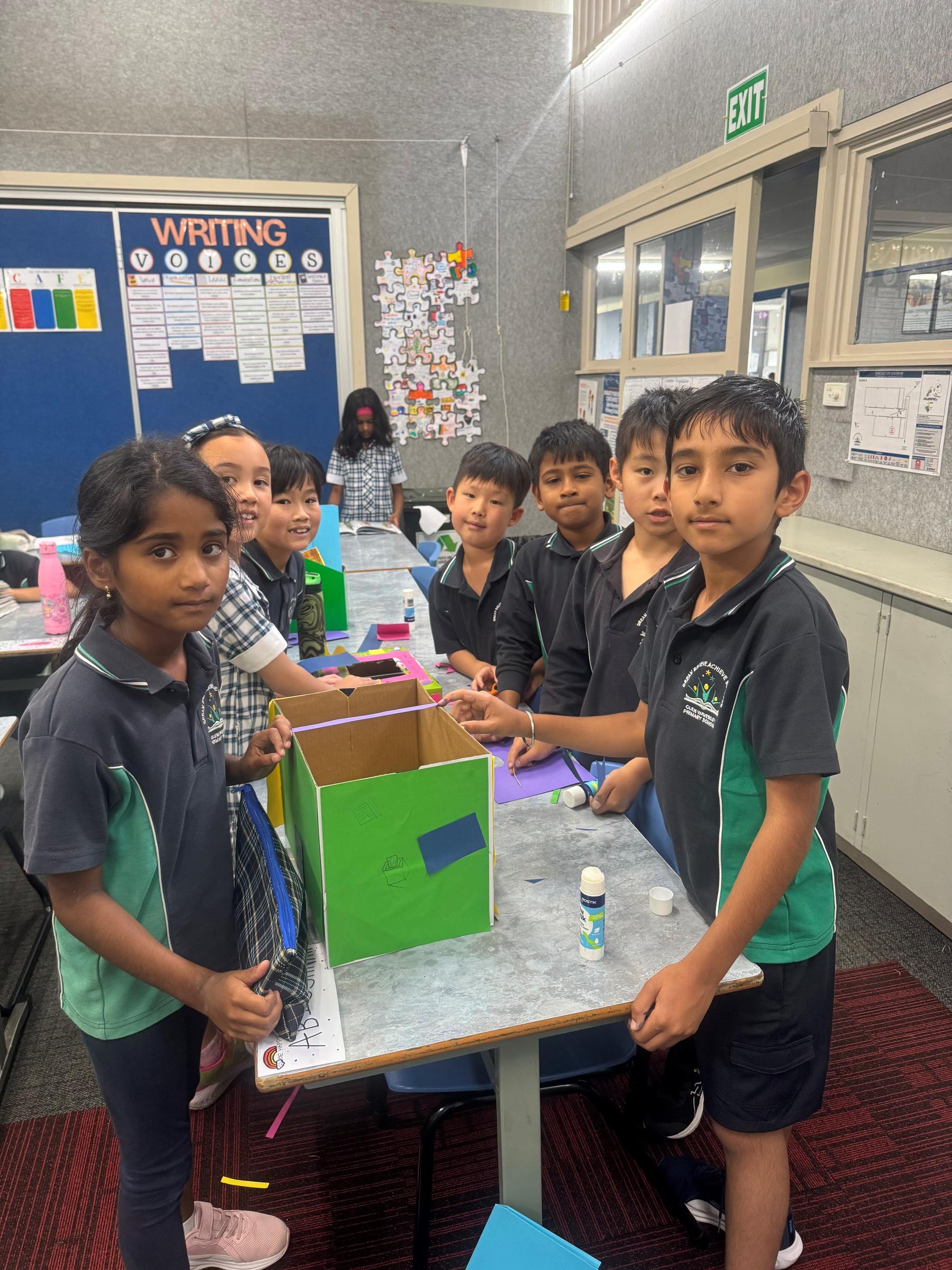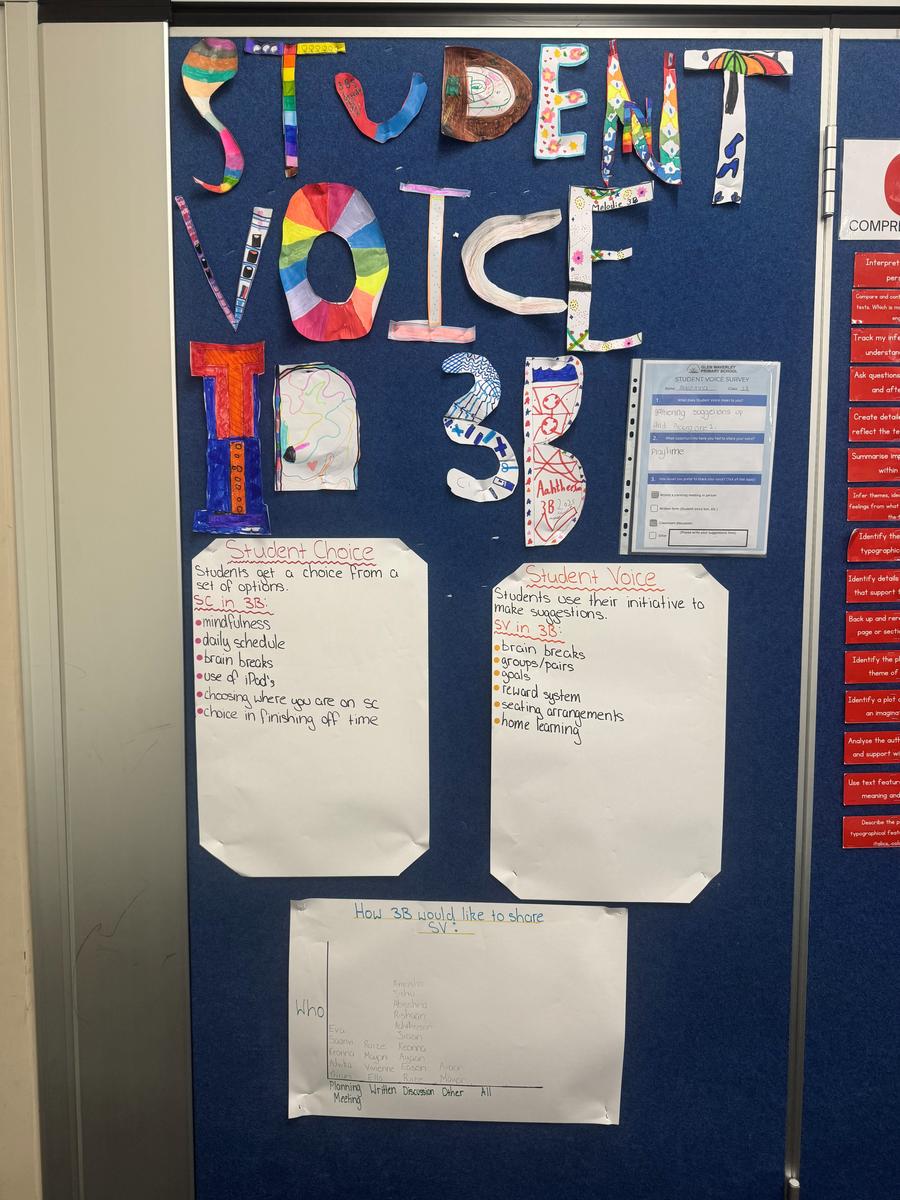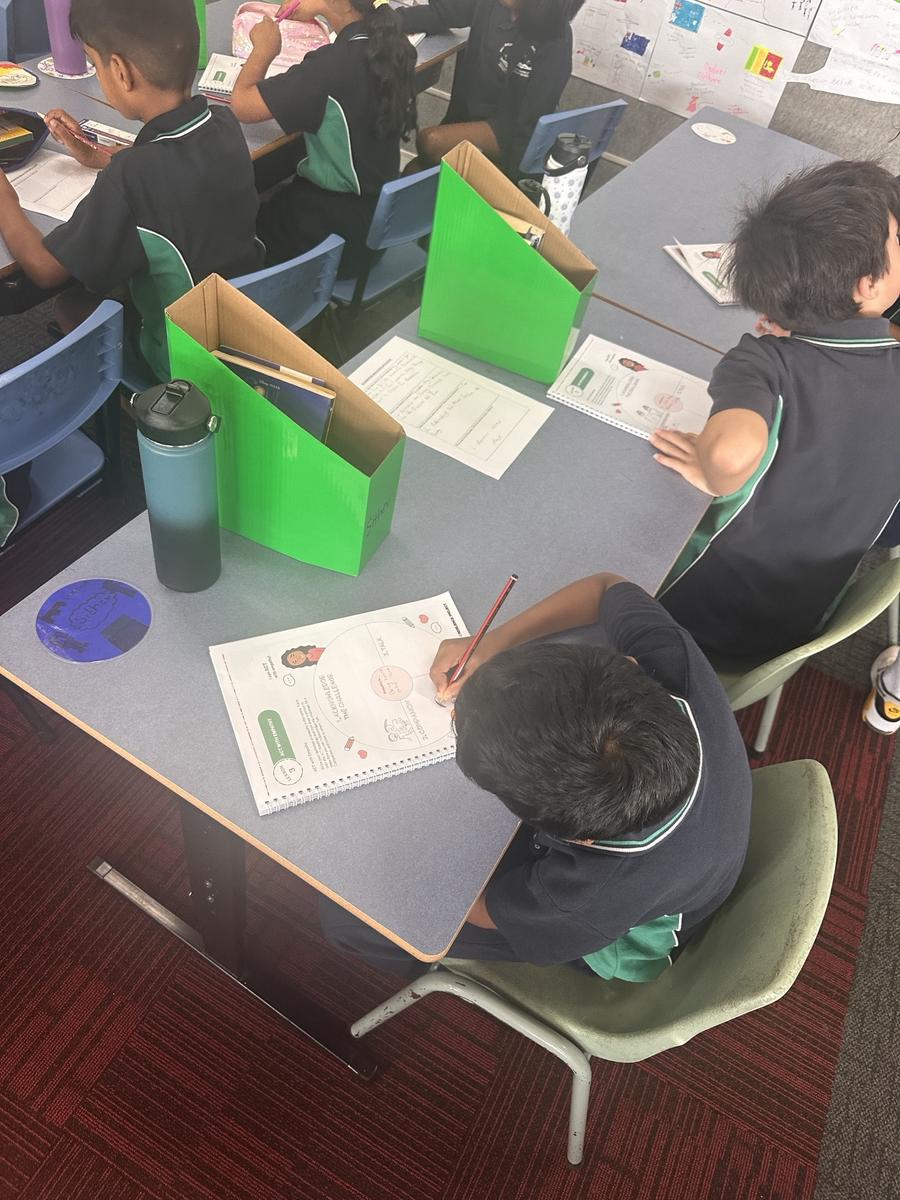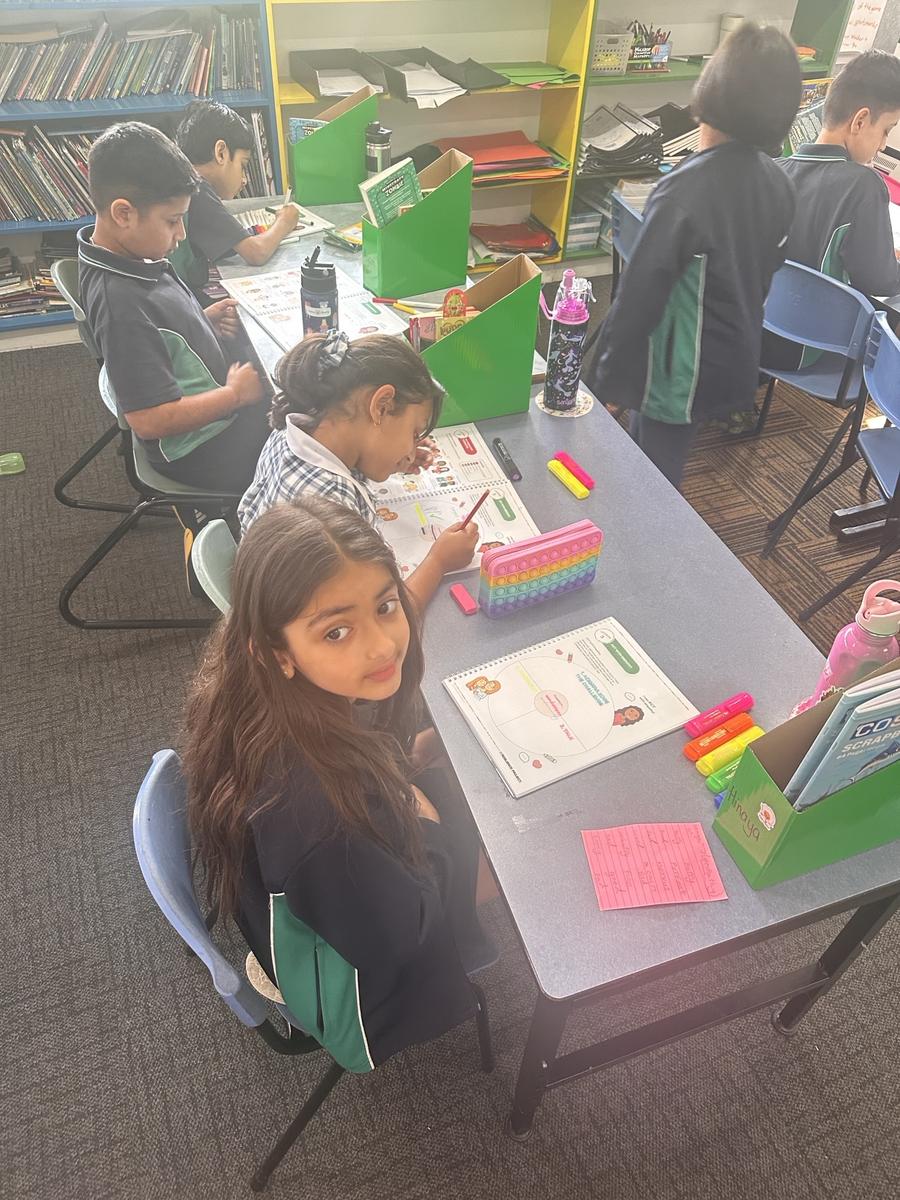Term 1

English
Reading
In Term One, Reading, our focus will be on exploring Narratives by examining character profiles, building ideas from texts, analysing short problems in stories, and understanding how endings impact the overall meaning. Learners will continue to work on the CAFE reading goals: Comprehension, Accuracy, Fluency, and Expanding Vocabulary. They will interpret characters' perspectives, check word accuracy in context, read with emotional fluency, and expand their vocabulary through descriptive language.
Key Vocabulary:
- Perspective
- Conflict
- Resolution
- Emotive language
- characterisation
Writing/Spelling
We are going to continue to use VOICES goals by focusing on the key elements of successful writing.
- Voice: We will write with a clear purpose and point of view, crafting a strong hook to capture and engage the reader's attention.
- Organisation: We will ensure our writing is well-planned and structured effectively.
- Ideas: We will conclude our writing with a sense of resolution, leaving the reader with something to think about.
- Expanded Vocabulary: We will choose precise, dynamic verbs to give our writing energy and flair
In Term One, students will explore the text types of Narrative and Persuasive, focusing on deepening their understanding of the structure of each genre through the explicit teaching of the VOICES framework. They will learn to write with a clear purpose and point of view, craft engaging hooks, plan and organize their ideas effectively, and conclude their writing with impactful resolutions. Students will also expand their vocabulary by selecting precise and dynamic verbs to enhance their writing's energy and flair. Throughout the term, they will apply these skills to their work, transferring techniques from text analysis to create pieces that engage and captivate readers. During Sustained Writing sessions, students will practice NAPLAN tasks using prompts from past NAPLAN assessments.
Students will engage with the OCHRE Education program on Spelling and the Whole School Approach to Spelling. In OCHRE, they will focus on identifying short vowel sounds in words, breaking words into parts, and practicing reading them aloud, while also unpacking vocabulary by exploring syllables, adjectives, sentence structure, and word associations. Through the Whole School Approach, Level Three students will expand their vocabulary using the Spelling Inquiry Model, investigating the meanings and etymology of their chosen words and developing a deeper understanding of other key elements related to spelling.
Key Vocabulary:
- Structure
- Setting
- Plot
- Problem
- Resolution
How can you support your child’s English learning at home?
- Keep journal/notebook to write for an authentic purpose
- Encourage your child to plan their writing through drawing pictures
- Help your child practice spelling words.
Mathematics
Throughout Term One, students will engage with Ochre Education’s high-quality curriculum resources aligned to the Victorian Curriculum 2.0. These lessons incorporate effective teaching practices underpinned by the Science of Learning such as explicit instruction, checking for understanding, interleaving, retrieval, and spaced practise. We are excited to continue using these resources in our classrooms to enhance learning.
Our learners will be exploring a variety of exciting topics, building their skills and confidence in place value, the four operations and time. As they deepen their understanding of place value, students will work on understanding the value of digits in numbers and use this knowledge to order and compare numbers. When applying the four operations, specifically, addition and subtraction, they will practice solving problems using strategies such as regrouping and number lines. Furthermore, when working with multiplication and division, learners will develop their fluency with times tables and explore how these operations can be used to solve real-world challenges. When learning about time, they will read clocks, tell time to the nearest, and investigate elapsed time.
Key Vocabulary:
- Counting
- Partition
- Regroup
- Multiplication facts
- Expand
- Units of time
How can you support your child’s Mathematics learning at home?
- Encourage them to engage in everyday mathematical activities with the family (adding up while shopping, counting items as they are scanned at the shop etc)
- Practise addition and subtraction recall facts
- Read and order large numbers to six places.
Inquiry
Question: How might relationships and collaboration shape resilient communities?
Global Goal: 16 Peace, Justice and Strong Institutions
In our upcoming Inquiry lessons, Level Three students will explore the concept of ‘consensus building’ and how they can use deliberation and negotiation to influence an outcome. Students will describe how people participate in their community as active citizens, their rights and responsibilities and use consensus-building and deliberation to negotiate outcomes together. They will create their own small community based on rules and laws that reflect varied preferences in society. To transfer their learning, students will establish a community building initiative and partake in an election based on their created laws.
Key Vocabulary:
- Laws
- Rules
- Communities
- Deliberate
- Negotiate
- Rights
How can you support your child’s Inquiry learning at home?
- Discuss different rules at home and the purpose of these.
- Read the local newspaper and discuss events and issues in your local community.
- Watch Behind the News together.
Wellbeing
Throughout Term One, students will explore The Resilience Project, delving into concepts such as Gratitude, Empathy, and Mindfulness. Through engaging in GEM chats and discussions, we aim to cultivate a positive sense of wellbeing and enhance resilience. Additionally, we will delve into the school's core values of Integrity, Respect, Initiative, and Global Empathy, examining how these principles are upheld both in the classroom and across the school community. Furthermore, we will actively explore, discuss, and model expected behaviours. The program aims to build mental resilience and wellbeing amongst educators, children, parents/carers, and the community. You can explore The Resilience Project at Home Hub here.
Key Vocabulary:
- Resilience
- Express
- Connections
- Core
- Wellbeing
How can you support your child’s Wellbeing learning at home?
- We encourage parents and families to have GEM chats at home. For example, what has made you smile today?
- Ask your child what they have been learning about in TRP learning time.
- Ask them how they have shown gratitude, empathy and mindfulness at school
Cyber Safety Project
In Term One, our Year 3 students will begin a new and exciting journey focused on Cyber Safety, with an emphasis on the theme of Responsibility. This project will help our students develop essential digital literacy skills, while also encouraging them to think critically about their actions and well-being in the online world. Throughout the term, we will explore creating safe and efficient passwords, being mindful of only accepting people we are aware of online, and the difference between personal, private and public spaces.



